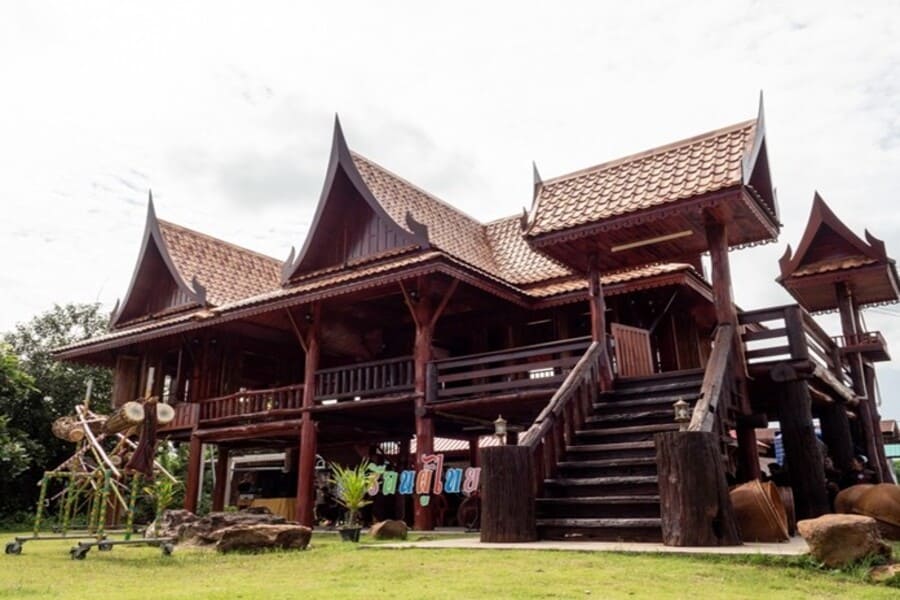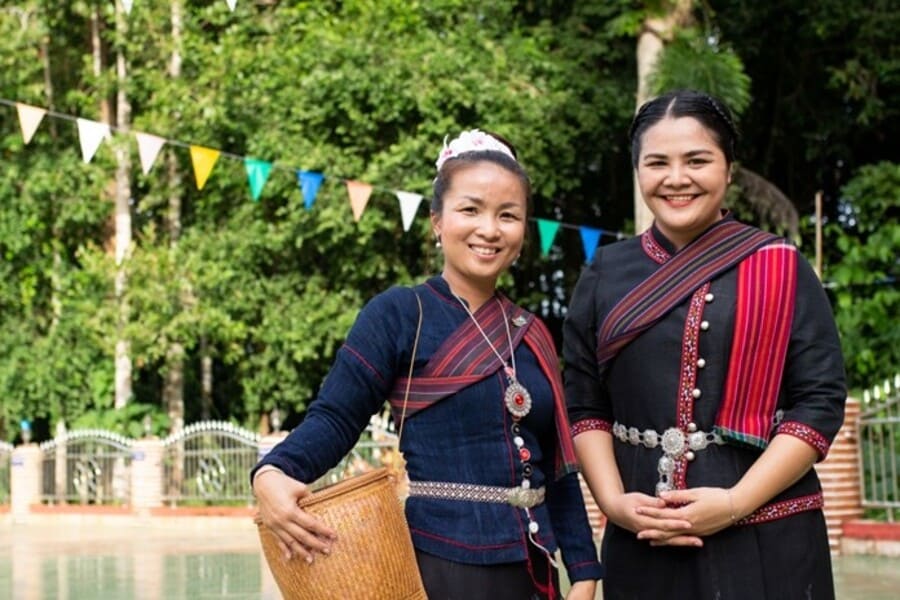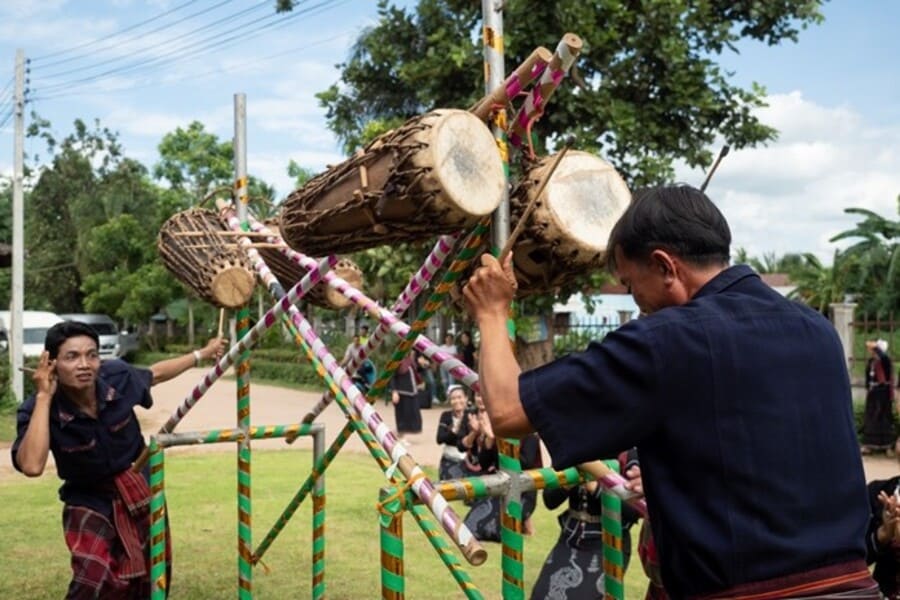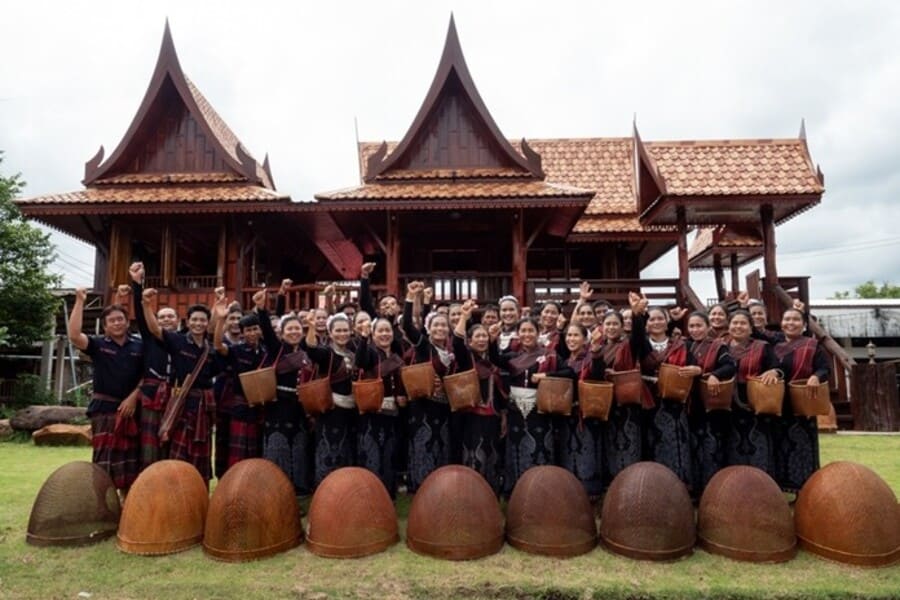Embark on an enriching laos tours and delve into the vibrant cultural tapestry of the Phu Tai people at Ngeun Cultural Village. Nestled amidst the scenic landscapes of Laos, this cultural gem offers a captivating glimpse into the traditions and way of life of the Phu Tai community.
An Overview of Ngeun Cultural Village
Ngeun Cultural Village is located in the Savannakhet Province of Laos, which is situated in the southern part of the country. The village is nestled amidst the scenic landscapes of Laos, offering visitors a tranquil setting to explore the culture and traditions of the Phu Tai people. While the exact location may vary, Ngeun Cultural Village is typically accessible by road from the provincial capital of Savannakhet, making it a convenient stop for travelers exploring the region.
Phu Tai people’s Culture and Traditions in Ngeun Cultural Village
The Phu Tai people are an ethnic group with a rich cultural heritage deeply rooted in Laos's history and traditions. Originating from the Tai ethnic group, the Phu Tai have inhabited the central and southern regions of Laos for centuries, contributing to the country's diverse cultural landscape.
History and Migration:
The Phu Tai are believed to have migrated from southern China to Laos several centuries ago, settling primarily in the provinces of Savannakhet, Khammouane, and Salavan. Over time, they have established distinct communities with unique customs and traditions.
Culture and Traditions:
The Phu Tai people have a rich cultural tapestry characterized by their language, art, music, and religious beliefs. They are known for their skilled craftsmanship in various traditional crafts such as weaving, pottery, and basketry, which play an integral role in their daily lives and cultural identity.
Religion and Beliefs:
Traditionally, the Phu Tai people practiced animism, believing in the spiritual significance of natural elements and ancestral spirits. Over time, Theravada Buddhism has become more prevalent among the Phu Tai community, influencing their religious practices and rituals.
Lifestyle and Livelihood:
Historically, the Phu Tai people were predominantly agrarian, relying on rice cultivation, fishing, and hunting for their livelihoods. Today, many Phu Tai individuals engage in agriculture, while others work in various professions such as trade, craftsmanship, and tourism.
Cultural Preservation:
Despite modernization and social changes, the Phu Tai people remain dedicated to preserving their cultural heritage. Efforts are made to pass down traditional knowledge and skills to younger generations through community gatherings, cultural events, and educational programs.
Community Spirit:
The Phu Tai people maintain strong ties to their communities, often organizing festivals, ceremonies, and social gatherings to celebrate their culture and strengthen bonds among community members. Hospitality and generosity are key values upheld by the Phu Tai, welcoming visitors with warmth and openness.
Activities for Tourists in Ngeun Cultural Village
In Ngeun Cultural Village, tourists can engage in a variety of activities that offer insights into the Phu Tai people's culture and way of life. Here are some activities for tourists to enjoy:
Guided Village Tours: Embark on guided tours led by knowledgeable locals who can provide insights into the history, customs, and traditions of the Phu Tai people. Explore the village's traditional houses, community spaces, and cultural landmarks while learning about the daily life of the residents.
Traditional Craft Demonstrations: Attend demonstrations of traditional Phu Tai crafts such as weaving, pottery, and bamboo basketry. Watch skilled artisans at work as they showcase their craftsmanship and explain the techniques behind each craft. Visitors may even have the opportunity to try their hand at these traditional arts under the guidance of local experts.
Textile Weaving Workshops: Participate in hands-on textile weaving workshops to learn the art of traditional weaving practiced by the Phu Tai people. Work alongside local weavers to create your own woven textiles using traditional looms, and gain a deeper appreciation for this ancient craft.
Cultural Performances: Experience the vibrant culture of the Phu Tai people through traditional dance, music, and storytelling performances. Witness colorful performances that showcase the community's rich cultural heritage and history, with lively music, graceful movements, and captivating narratives.
Culinary Experiences: Indulge in authentic Phu Tai cuisine through cooking classes or culinary demonstrations. Learn about traditional cooking methods, ingredients, and flavors as you prepare and sample delicious dishes unique to the region. Engage in cultural exchanges with local cooks and discover the culinary delights of the Phu Tai culture.
Homestay Experiences: Immerse yourself in the hospitality and warmth of the Phu Tai community by staying in a traditional homestay. Experience daily life with a local family, participate in household activities, and share meals prepared with locally sourced ingredients. Homestay experiences offer a unique opportunity to connect with the community on a personal level and gain insights into their way of life.
Nature Walks and Hiking: Explore the scenic surroundings of Ngeun Cultural Village through guided nature walks and hiking trails. Discover the natural beauty of the region, including lush forests, rivers, and mountains, while learning about the local flora and fauna from knowledgeable guides.
In conclusion, Ngeun Cultural Village stands as a beacon illuminating the rich tapestry of the Phu Tai people's culture and traditions. Through immersive experiences and vibrant displays, visitors are not merely spectators but active participants in the preservation and celebration of a heritage that spans generations.




